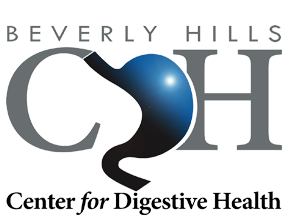Gluten, Your Gut, and You
BOOK APPOINTMENTWhat is gluten?
Gluten is a protein found in wheat, rye, barley, and some other carbs that help bread rise and gives the elasticity and texture we expect from our pasta and noodles. But it can also cause problems in some peoples’ digestive systems.
What negative reactions can it cause?
- Celiac disease: The most severe of reactions, celiac disease, is an autoimmune disorder inherited from a genetic disposition. If you have celiac disease, when you digest gluten, the cells lining your small intestine will flatten, which can cause inflammation, the malabsorption of nutrients in your food, and other related health issues. There are actually over 200 different identified symptoms of celiac disease, ranging from anemia to behavioral changes, to stunted growth and infertility. Current estimates believe that 1% of the population has celiac disease, although 83% of those people are undiagnosed. To determine if you have celiac disease, a doctor will hold a blood screening, and if that turns out positive, a small intestine biopsy.
- Wheat Allergy: Wheat is composed of hundreds of different proteins, and a wheat allergy is a reaction to any number of them. When you have a wheat allergy, your body sees it as an invader. To fight this infection, a type of white blood cell known as a B-cell releases immunoglobulin antibodies to attack the wheat. Simultaneously, the rest of your body sends out natural signals that there is an invader, which can result in a wide range of symptoms including nausea, itching, abdominal pain, swelling of the lips and tongue, issues breathing, and — in major cases — life threatening anaphylaxis. People with wheat allergy must avoid eating wheat but can consume gluten from other sources.
- Non-Celiac Gluten Sensitivity (NCGS): Also known as gluten sensitivity or non-celiac wheat sensitivity, NCGS is not well defined at this time. It is neither an autoimmune reaction nor an immunoglobulin reaction like the two reactions above, and can only be determined via a process of dietary elimination. Tests are done for both celiac disease and wheat allergy, and if a trial run of a gluten-free diet leads to a decrease in symptoms, a person is considered NCGS.
If you think you might have one of the above conditions, contact the Beverly Hills Center for Digestive Health and schedule an appointment today. We’ll start you on a “rule-out” process to determine if you may be suffering from one of these disorders.
Our Blogs
Accurate Diagnostics for Anorectal Strength and Function
Back to BlogsAre you having problems producing healthy bowel movements? The problem may be the muscles around your digestive tract either not coordinating properly or lacking strength. To get your GI problems addressed as soon as possible, visit the Beverly Hills...
Pelvic Floor Dysfunction?
Back to BlogsPelvic floor dysfunction is the inability to relax and coordinate your pelvic floor muscles to allow for smooth defecation. Fortunately, there are treatments available, including biofeedback, medications, and physical therapy. Reclaim strength and comfort...
Cutting-Edge, Compassionate Care Can Help You Find Hemorrhoids Relief
Back to BlogsHemorrhoids can be debilitating and painful, but treatment is available. If you’re suffering from hemorrhoids, make an appointment at the Beverly Hills Center for Digestive Health. We offer cutting-edge, compassionate care to help you find hemorrhoids...
Call to Schedule
Our office is available to answer your questions and evaluate your symptoms.

Phone
(310) 855-0222
Fax: (949) 404-6467
Hours
Mon - Fri: 9am – 5pm
Sat - Sun: Closed